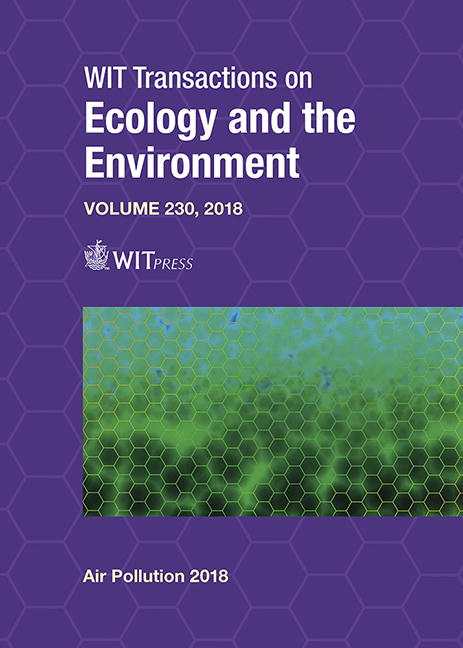EVALUATION OF THE CHEMICAL TRANSPORT OF AIR POLLUTANTS IN THE METROPOLITAN REGION OF SALVADOR, BRAZIL
Price
Free (open access)
Transaction
Volume
230
Pages
12
Page Range
519 - 530
Published
2018
Paper DOI
10.2495/AIR180481
Copyright
WIT Press
Author(s)
YASMIN KAORE LAGO KITAGAWA, ERICK GIOVANI SPERANDIO NASCIMENTO, NOÉLE BISSOLI PERINI DE SOUZA, SILVANO MOREIRA JUNIOR, TACIANA TOLEDO DE ALMEIDA ALBUQUERQUE, DAVIDSON MARTINS MOREIRA
Abstract
Considering the fact that the exposure to polluted air has been associated with adverse health effects, it is important to look into the air pollution in urban areas. To evaluate the impact of emissions on the air quality in the Metropolitan Region of Salvador (MRS) in the Northeast region of Brazil, simulations using the Weather Research and Forecasting (WRF) and the Community Multiscale Air Quality (CMAQ) models were applied. The region’s choice was due to the fact that, although Salvador is the 3rd most populated city in Brazil and its metropolitan area is the 7th most populated one, there is a lack of scientific studies about regional air quality and air pollution dispersion, especially in terms of photochemical regional impact assessment of pollutants in this urban area. The aim of this work was to assess the impact of atmospheric pollutants (NOx and SO2) over the MRS from stacks held in a petrochemical complex that lies within this metropolitan site. The emissions rates were based on another study since there is no official emissions inventory available for the region. Moreover, as there were no pollutant measurement data to be compared, a qualitative analysis was conducted. The results showed the importance of the application of the state of the art in the computational atmospheric modeling field in order to assess the air quality of the MRS.
Keywords
air quality, dispersion modelling, WRF, CMAQ, Salvador, Bahia





